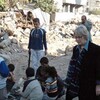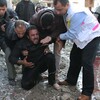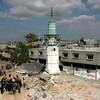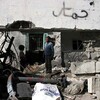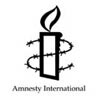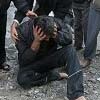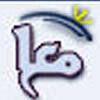
Massacre in Beit Hanoun
Beit Hanoun, Gaza Strip 8 November 2006
One day after the Israel army declared that it had pulled out and completed Operation Autumn Clouds in the northern Gaza Strip town of Beit Hanoun, 24 Palestinians were killed in Gaza and the West Bank, 19 people were killed and at least 45 were injured as a large number of shells were fired at the town. Another five Palestinians were killed in Jenin, northern West Bank by Israeli army fire. The series of incidents began at 6 a.m., when eyewitness said that dozens of tank shells and missiles landed simultaneously in a small and limited area in Beit Hanoun. Ambulances found it difficult to evacuate the wounded. Read more about Massacre in Beit Hanoun
